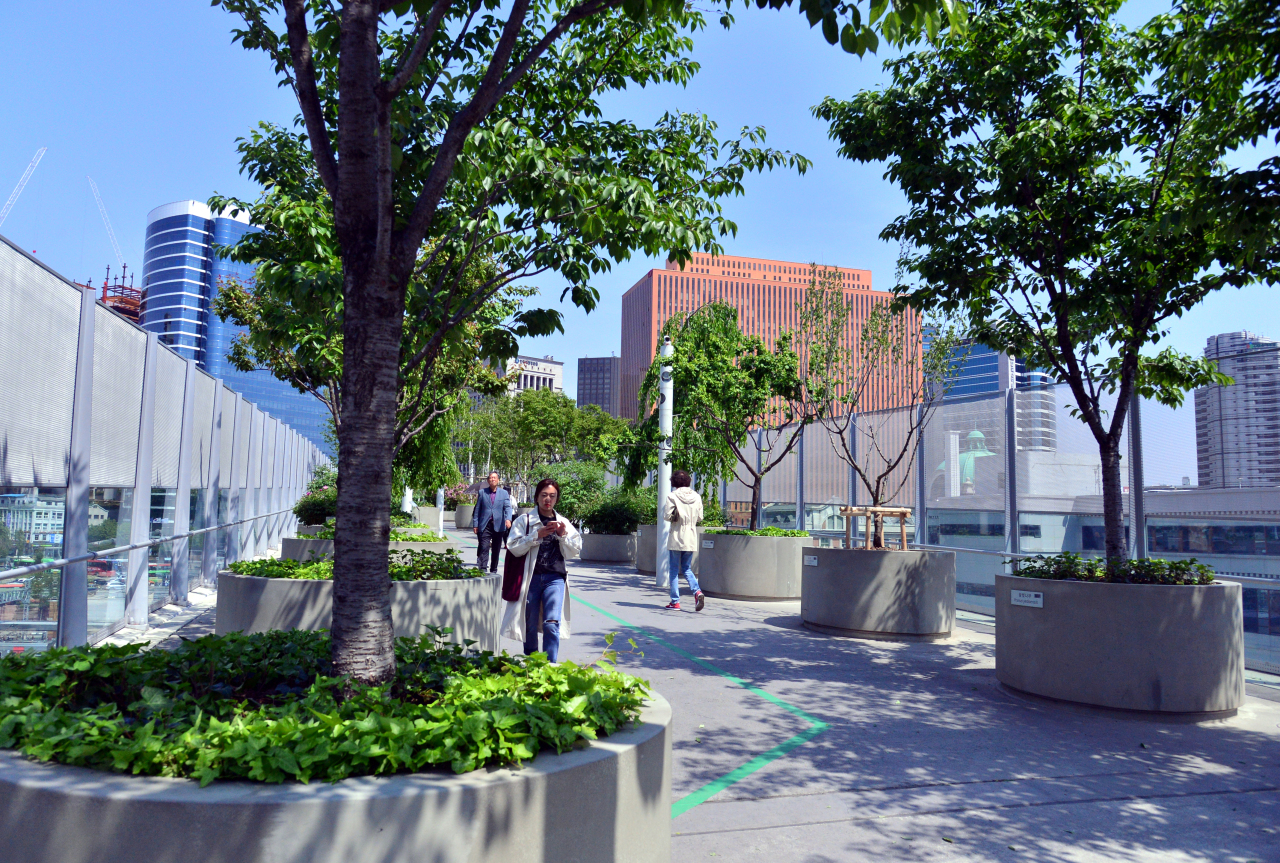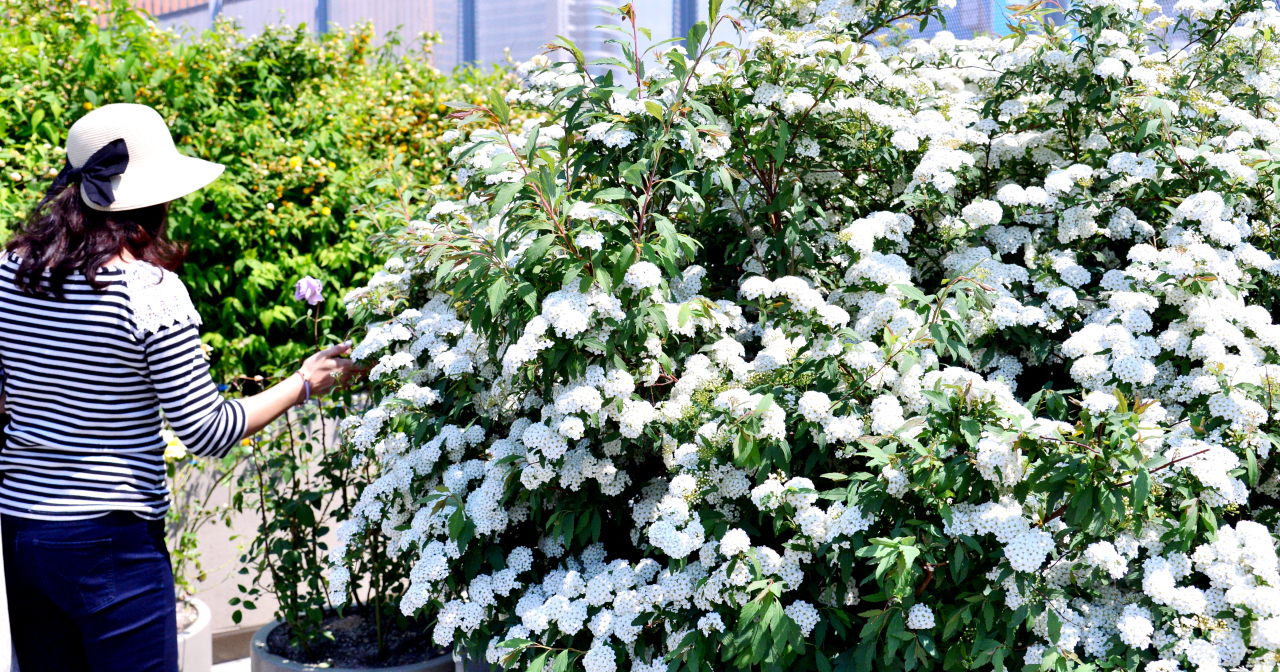Along the overpass-turned-park Seoullo 7017 are large pots of flowers that have unfamiliar foreign names but are commonly spotted on the streets of South Korea.
Among them are pink flowers with the Russian nomenclature Schlippenbach, also known as chuljjuk in Korean, one of the most widespread spring flowers here. Abies Koreana Wilson, better known in Korea as the Christmas tree, also stand on the bridge.
According to the Seoul Metropolitan Government, all the flowers being displayed at Seoullo as part of the exhibition “Where Have All the Flowers Gone?” have Korean origins, but they are deemed foreign plants as they were “stolen” by imperial forces during the 19th century.
 |
Trees and flowers at Seoullo 7017 by Park Hyun-koo. The Korea Herald |
 |
By Park Hyun-koo |







